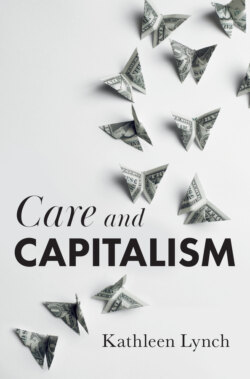Читать книгу Care and Capitalism - Kathleen Lynch - Страница 11
Introduction
ОглавлениеCapitalism is the dominant political-economic system of the twenty-first century (Streeck 2016): profit-oriented companies own and control most of the world’s productive resources and capacities (Block 2018). The human cost of the concentration of wealth among so few is unsustainable (Oxfam 2021),1 something that became even more evident during the Covid-19 pandemic that took hold in 2020.2
Although capitalism has varied in character over time and place, from merchant to industrial to neoliberal, the fundamental principles governing its operation remain constant (Patel and Moore 2018). It institutionalizes and legitimates class-based economic inequalities, frequently in deeply racialized and gendered ways. It builds on and consolidates pre-existing hierarchical, patriarchal and racial divisions of wealth and power, thereby producing and reproducing eliminable forms of human suffering. Capitalism also contributes to a corrosion of democracy and community, the encouragement of environmentally destructive patterns of consumption, and, in a world of nation states, a fuelling of militarism and imperialism (Wright 2010: 37).
As neoliberal capitalism is the dominant form of capitalism in the twenty-first century (Harvey 2005; Streeck 2016), and although it can vary in form between nation states, depending on the politics and institutional structures in place (Hall and Soskice 2001; Hall and Gingerich 2009), its fundamental operational principles and ethics remain the same. This book will focus on its multiple implications for caring.
